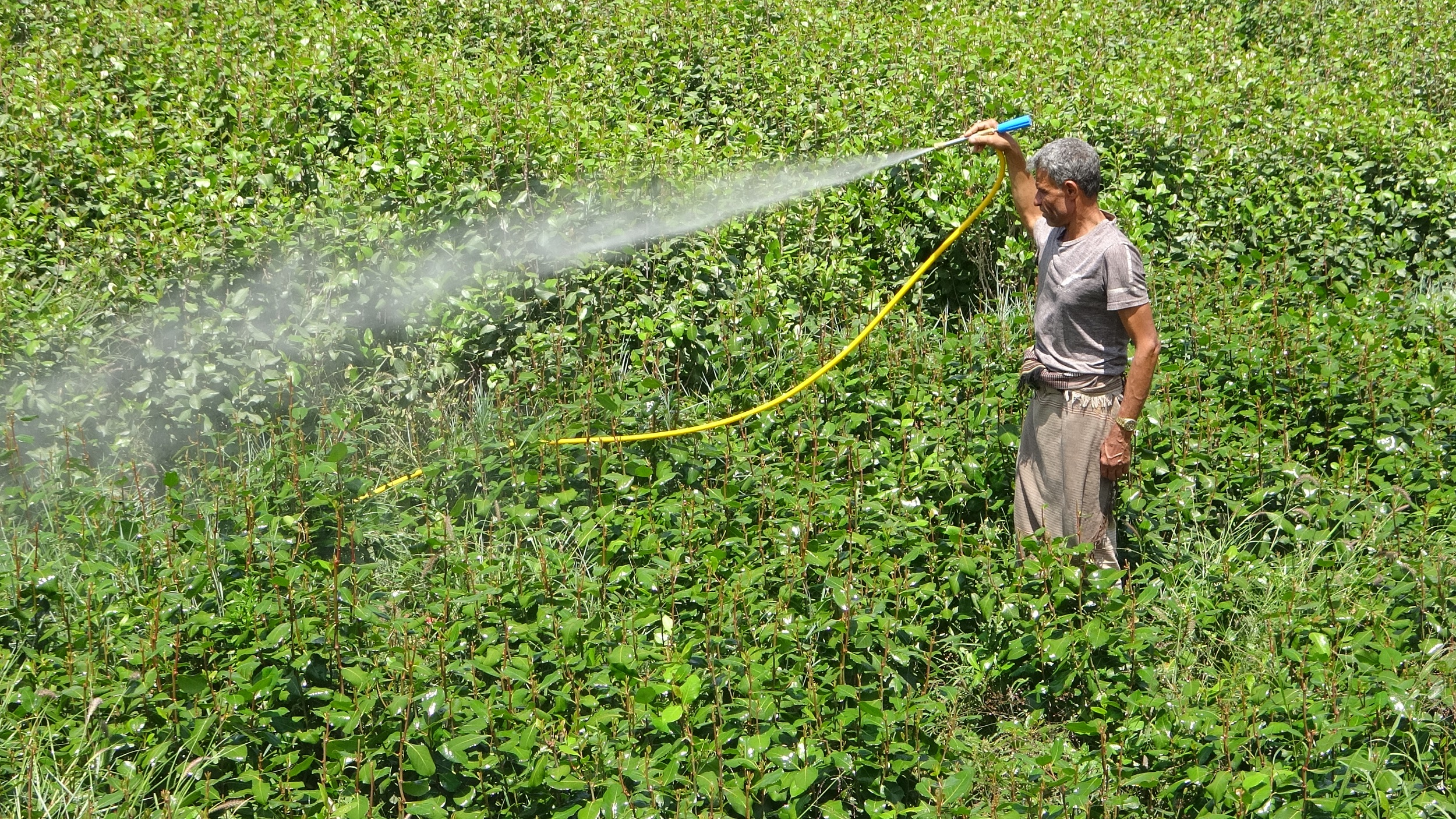
A farmer spraying pesticides on the qat crop in ’Wadi Al-Zubiryat‘ in Qatabah in Al-Dhalea, April 8, 2025 (South24 Center)
آخر تحديث في: 17-04-2025 الساعة 5 مساءً بتوقيت عدن
|
|
In the fertile valleys of Al-Dhalea, a toxic cocktail of banned pesticides and government neglect is brewing a silent health catastrophe - where every spray of insecticide on qat plants brings farmers closer to cancer, and where prohibition lists gather dust while poison flows freely in local markets.
Khadija Al-Jasri (South24 Center)
The governorate of Al-Dhalea in South Yemen is facing an escalating environmental and health crisis due to the irregular use of pesticides and chemical fertilizers, including those nationally prohibited and restricted, especially on qat plants. Amid the lack of effective control, these hazardous substances are available in the market, with their use leading to devastating effects on the environment and people's health. This includes chronic diseases as well as the poisoning of groundwater and soil. Despite the growing complaints by people, the relevant official bodies are unable to tackle the disaster.
Agricultural pesticides are considered a main source of health and environmental hazard in Al-Dhalea as a result of their unregulated use and with no supervision. This has led to the spread of toxins, respiratory disorders as well as neurological problems and rise in chronic diseases, including cancer. The Health Ministry pointed to a rise of cancer cases in Al-Dhalea since 2018.
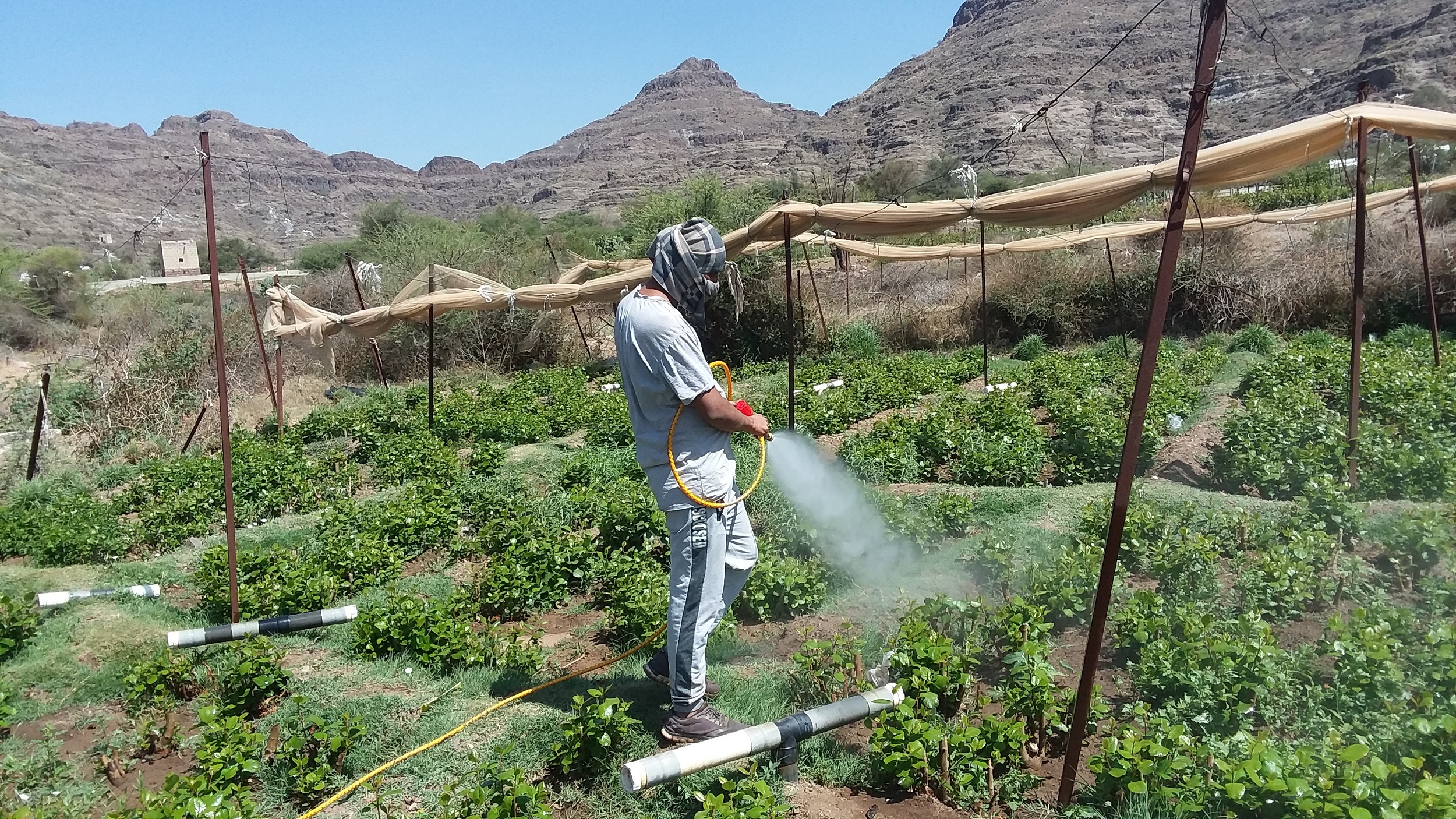
A farmer spraying pesticides on qat plants in Wadi Shabah in Maris in Al-Dhalea, April 8, 2025 (South24 Center)
Dr. Marwan Mohammed Abulkarim, statistics official at the Health Ministry in Al-Dhalea, told ’South24 Center‘ that most pesticide-linked cancer and liver patients do not go to government hospitals or oncology centers and are treated in private hospitals. He added that many of such patients die without their cases being officially recorded.
However, according to official statistics issued by the Health Ministry and obtained by ’South24 Center‘, the Oncology Center in Aden documented 429 cancer cases from Al-Dhalea between 2018-2022. Official data shows a marked rise in the number of cancer cases over five years. The total cases climbed from 63 in 2018 to 114 in 2021 and 2022, pointing to nearly doubling of cases during the period.
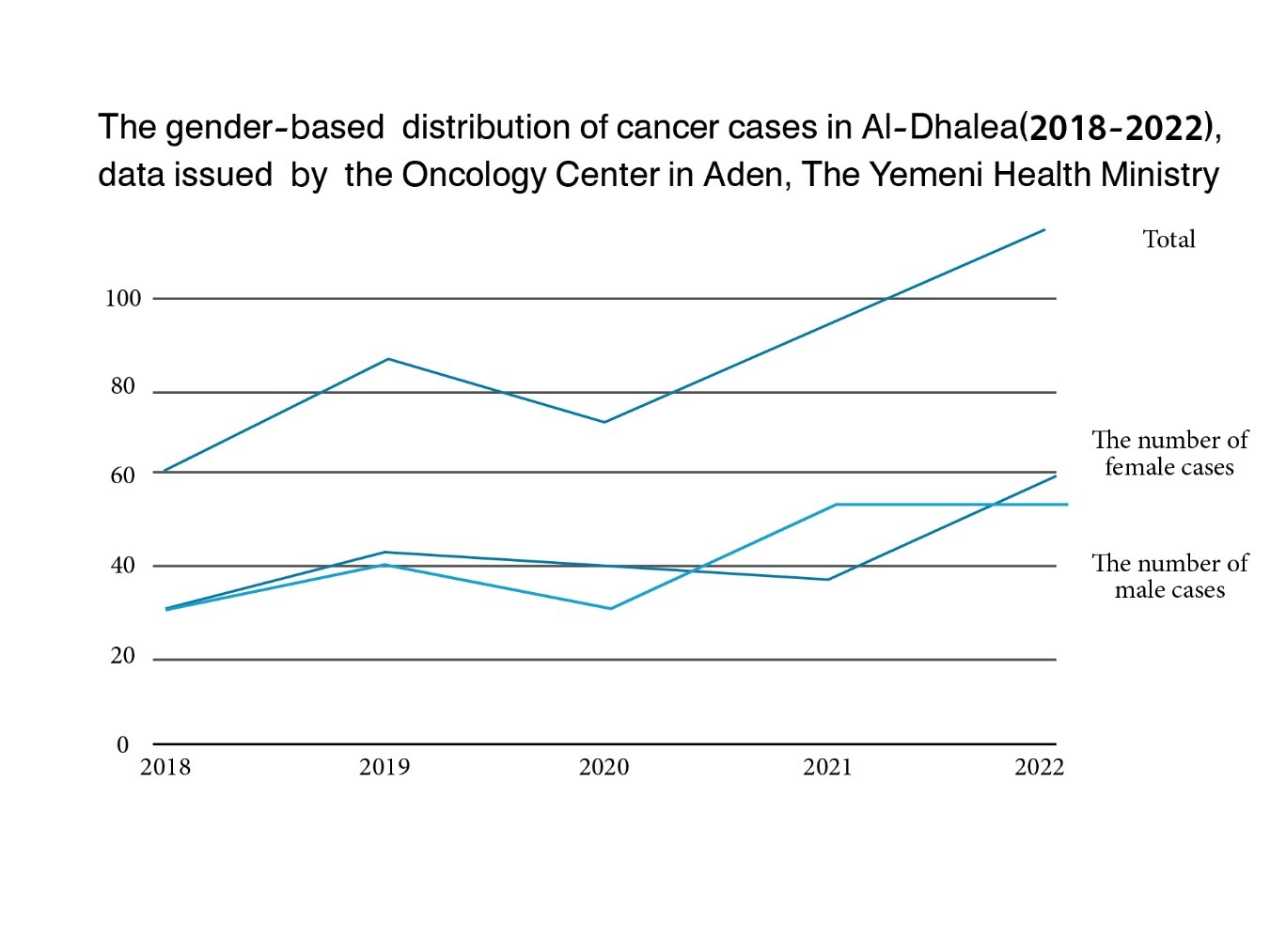
The statistics show a remarkable similarity in the number of cancer cases among both men and women, with 216 males and 203 females, recorded. While slight differences were seen in some years, there has overall been a balance in the numbers of cancer cases seen among both genders. This reflects a shared exposure to the environmental risks in Al-Dhalea.
It is thought that the rise in numbers is partly due to the random use of pesticides and chemical fertilizers in agriculture.
Dr. Safaa Shokri, hematologist and oncologist at ’Al-Sadaka Hospital‘ in Aden, spoke to ’South24 Center‘ about the risks of exposure to chemical pesticides. She pointed out that these are linked to skin, eye, and lung inflammation, and may lead to cancer of the lungs, blood, lymph nodes, kidneys, and bladder. She stressed that continuous exposure to such substances poses a threat to all ages, even to the unborn child of pregnant women.
She added that several scientific studies have proved a link between the use of chemical pesticides and brain cancer. According to her, the extended use of such pesticides increases the possibilities of developing multiple cancers, including prostate and breast cancers.
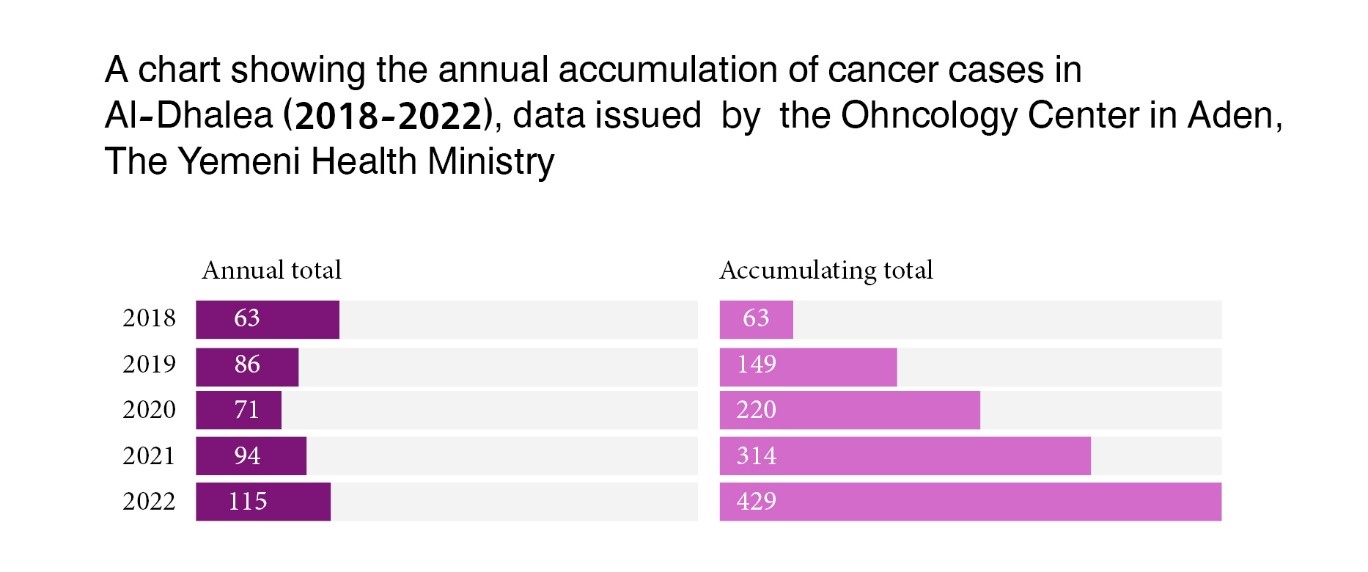
Prohibited Products Sold Publicly
Despite the Ministry of Agriculture, Irrigation, and Fisheries in Yemen issuing two lists with the names of prohibited and highly restricted pesticides, many of these hazardous substances are still displayed in the local markets and sold to farmers without any control or information about their associated risks. These lists, issued by the General Directorate for Plant Protection in Aden, prohibit or restrict the trade in dozens of pesticides that have a high toxic impact on humans and the environment. These include insecticides, herbicides, fungicides, and rodenticides.
During a field tour conducted by ’South24 Center‘, a number of these prohibited pesticides were seen in the agricultural markets of Al-Dhalea, most of which are used on qat crops. They include ’AGRANIL‘ that has the active ingredient ’Methomyl‘, which is officially prohibited according to the latest governmental list under the number 132. This is in addition to highly restricted pesticides such as ’Asulam‘, ’Atrazine‘, and ’Azothoate‘. These were included in a previous list of the highly restricted pesticides.
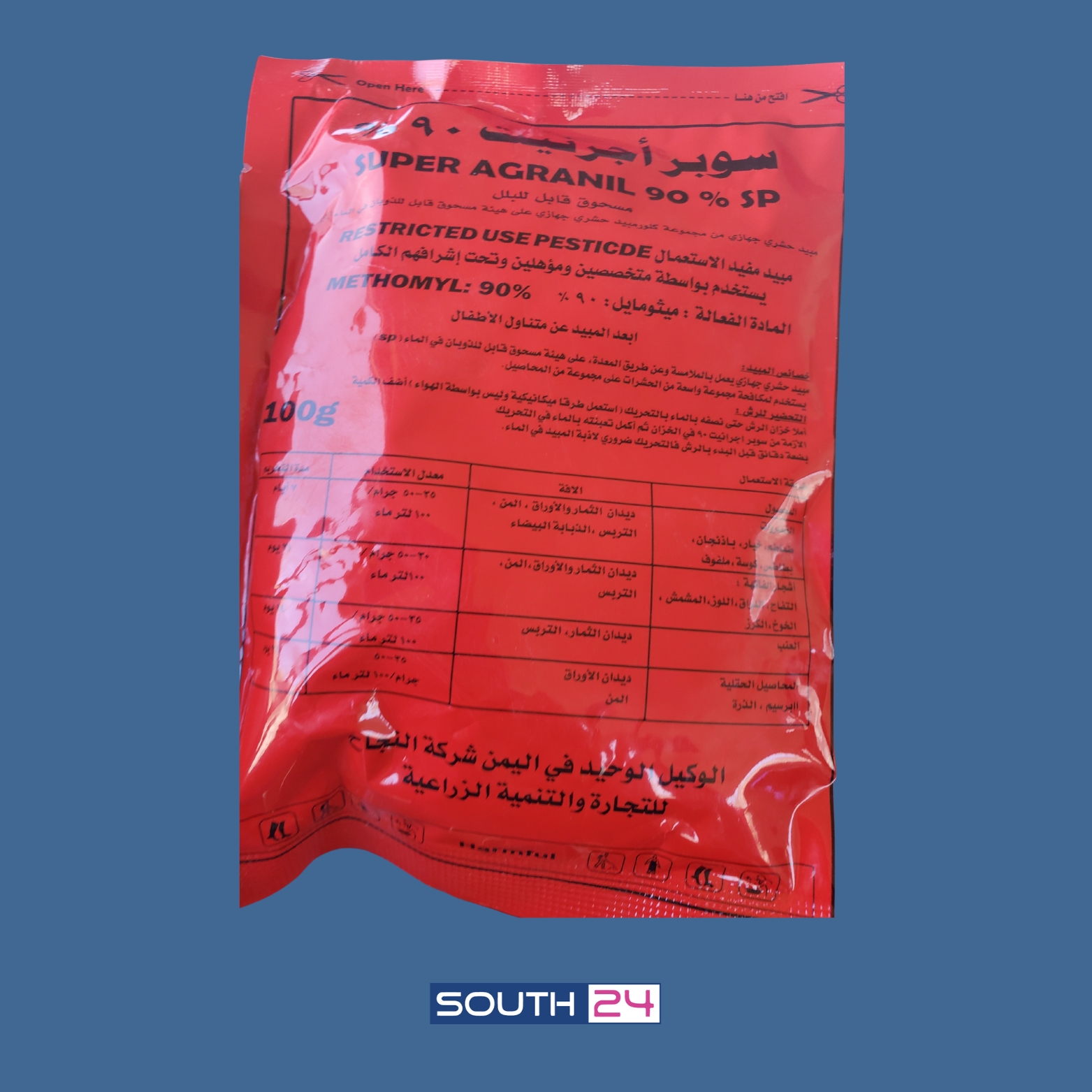
Pesticide 'AGRANIL’ in a market in Al-Dhalea (South24 Center)
Many of these banned pesticides are displayed openly on shelves without any clear warning labels about the toxicity, thereby facilitating their easy access to ordinary citizens and farmers. The shop owners did not allow ‘South24 Center’ to take pictures of the pesticides being sold. However, the author of this report was able to document the most hazardous one ’AGRANIL‘ which is traded in powder form under the Arabic name ’Super Agranit‘ through the exclusive agent in Yemen ’Al-Nagah for Trade and Agricultural Development’.
Another harmful pesticide, ’Supracide 40EC‘, displayed in the agricultural markets, is used by farmers in some areas. This product includes the active ingredient ’Methidathion‘ at 40g/L.T. This substance is included in the prohibited pesticides list in Yemen under the number 130, according to the document issued by the Ministry of Agriculture and Irrigation.
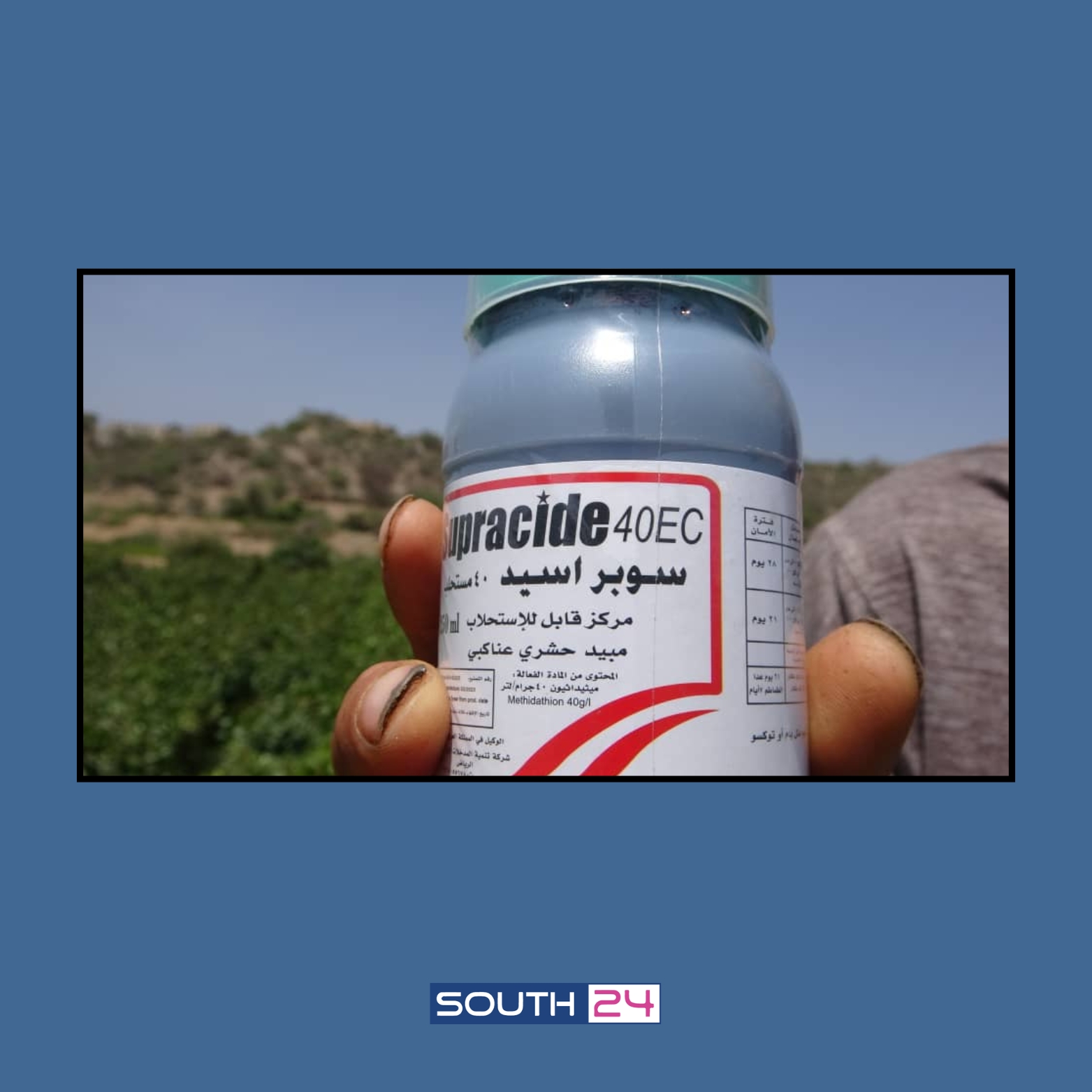
Pesticide ‘Supracide’ being used in a farm in Al-Dhalea governorate (South24 Center)
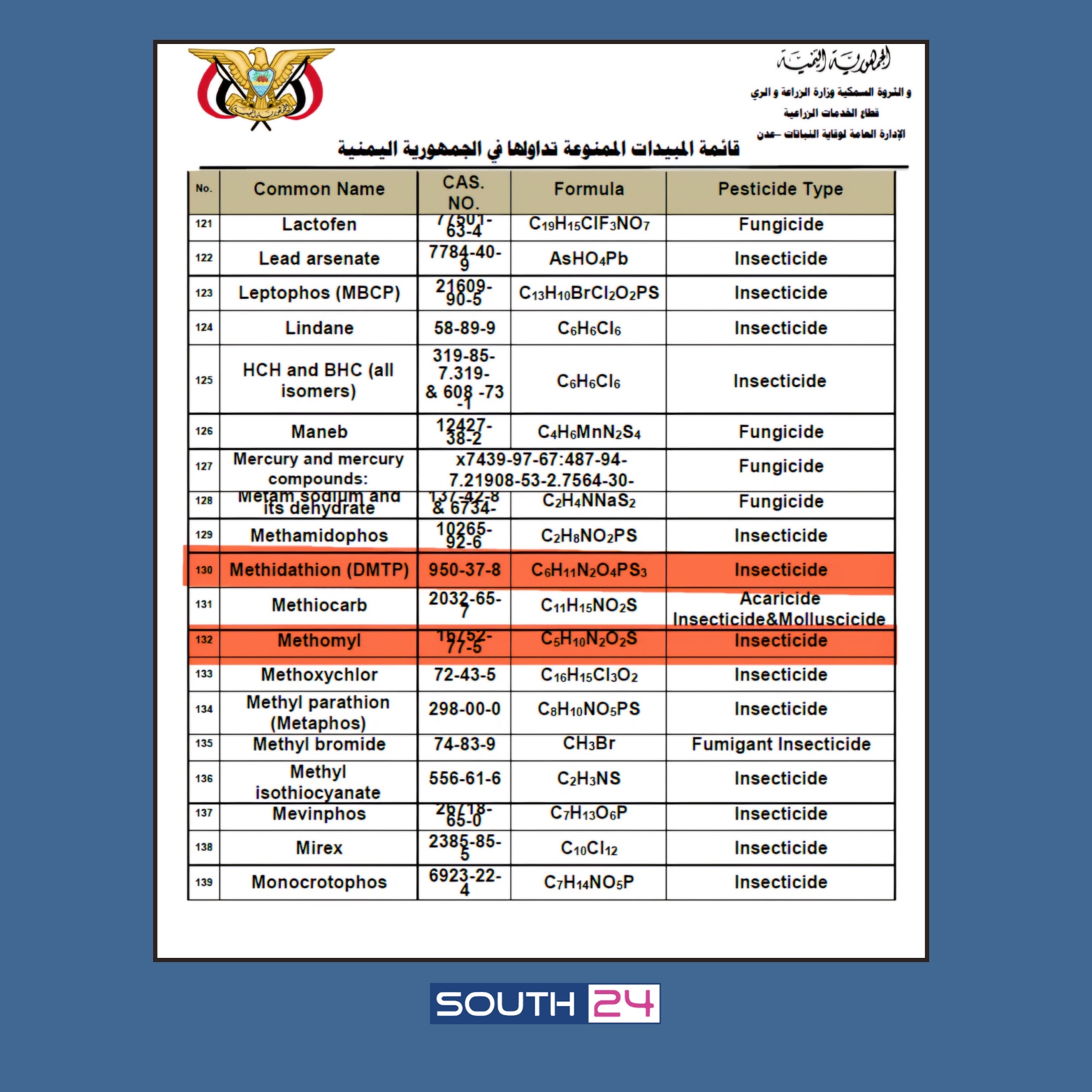
Page 7 of the list of prohibited pesticides in Yemen, according to a bulletin issued by the Ministry of Agriculture, obtained by ’South24 Center‘. The highlighted rows 130 and 132 include the names of prohibited substances ’Methidathion‘ and ’Methomyl‘ which are used to manufacture pesticide ’AGRANIL‘ and ’Supracide 40EC‘, available in Al-Dhalea’s markets.
During the field tour, ’South24 Center‘ detected another pesticide known as ’Agromec 1.8% EC‘. It is displayed in the local agricultural market and is widely used by farmers despite having the active ingredient ’Abamectin’.
Although this substance is not included in the official list of prohibited or highly restricted pesticides in Yemen, scientific reports issued by the European Food Safety Authority (EFSA) classify it as a highly-poisonous component with a low safety margin. This means that the difference between a correct dose and a poisonous one is extremely low. The EFSA warned of the possibilities of severe neurological effects in humans upon direct exposure. This requires regulating the circulation of this substance and tightening controls over its use in the Yemeni market.
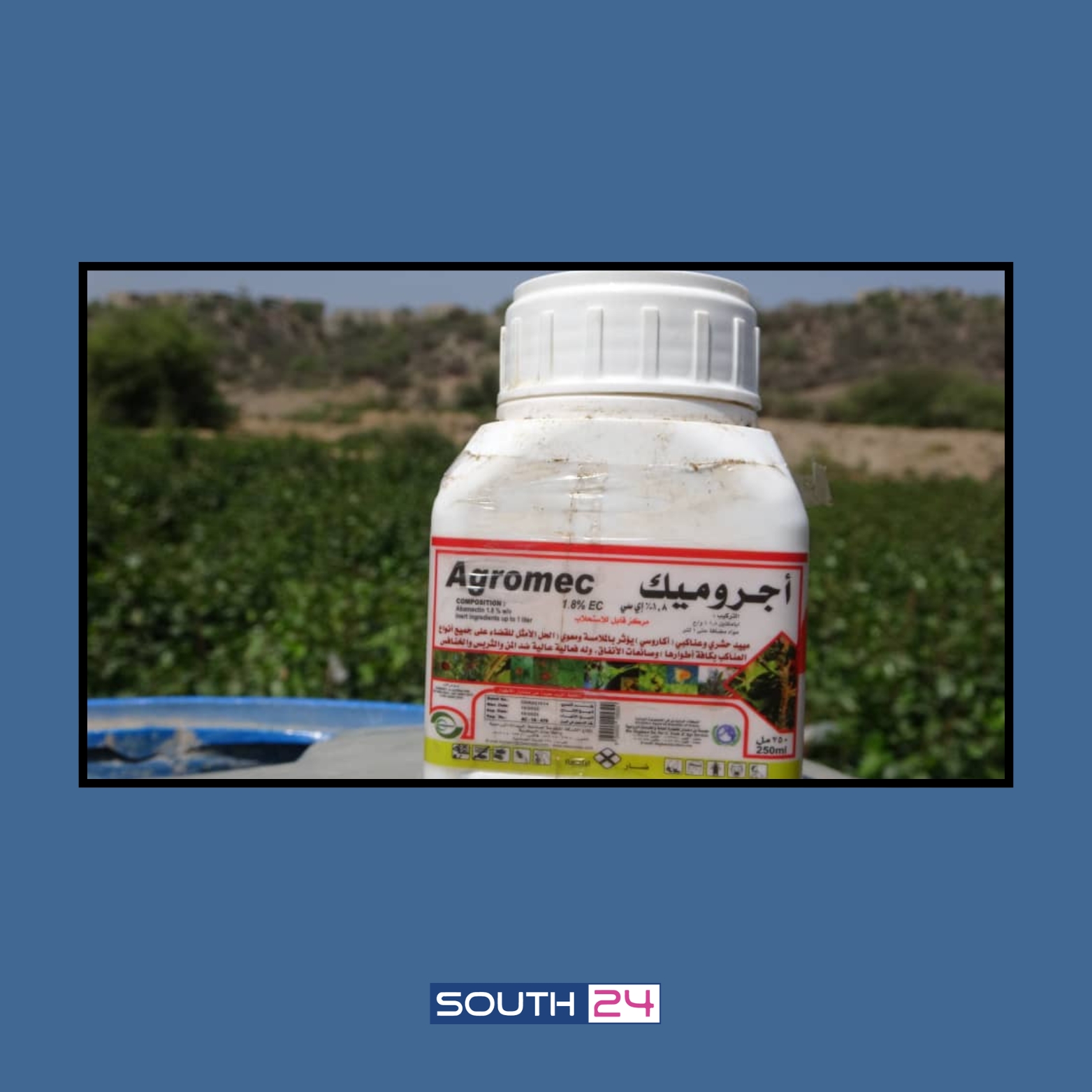
Pesticide ’Agromec‘ in a farm in Al-Dhalea governorate (South24 Center)
Story of a Victim
Arwa, 27, a mother of four from a village in Qatabah in Al-Dhalea, fell victim to these hazardous substances in November 2024. According to Arwa’s mother, her daughter went to purchase pesticide for her crop. The seller gave her a fast-acting pesticide called ’Granit‘ without warning her of its dangerous effects or the safety measures to be adopted. After spraying it on the farm, Arwa felt dizzy and nauseous. She was moved to a local health center and then to a hospital in Aden. It was found that she had suffered complete liver damage because of the highly toxic chemical. She died days later, leaving behind her four children.
A large segment of women work in the agricultural fields in Al-Dhalea, and in some areas their percentage exceeds that of men, based on the agricultural seasons.
Agricultural expert Mohammed Al-Khayari told ’South24 Center‘ that quantities of nationally or internationally banned pesticides and toxins continuously flow into Al-Dhalea, either via smuggling or by repackaging them under different names. He warned that this represents a big threat to the health of the people and the environment. He emphasized that the most prominent risks include poisoning of humans, and water and soil pollution, crop damage, and eliminating useful insects such as bees.
Scattered Responsibilities and Continuous Smuggling
The responsibility of monitoring the sale of pesticides is shared by some government bodies, foremost being the ministries of Agriculture, Environment, and Health. However, the lack of coordination and effective control has allowed the spread of prohibited pesticides, particularly in Al-Dhalea.
Eng. Mohammed Husein, Head of the Pesticides Department in the Ministry of Agriculture, told ’South24 Center‘ that Law no. 25 of 1999 regulates the use and trade of plant pesticides as well as determines the ministry’s responsibilities in this regard. According to him, the ministry is working to tighten control on the import of pesticides through the official outlets by launching strict monitoring and inspection operations as well as issuing import licenses to ensure the safety of products before they enter the country.
Nonetheless, Hussein admitted that smuggling of prohibited pesticides continues via the coasts in a way that increases the spread of these substances in the market, especially Al-Dhalea. He added that the ministry is coordinating with the security bodies to chase away smuggled shipments and inform the relevant authorities to take the necessary measures.
However, the issue isn't limited to the Ministry of Agriculture. Mohammed Abdullah Al-Hamidi, Undersecretary of the Foreign Trade Sector at the Ministry of Industry and Trade, told ’South24 Center‘ that his ministry isn't responsible for monitoring pesticides, and that its role is limited to issuing commercial registrations.
For his part, Fadl Suwaileh, Head of Consumer Protection in the Ministry of Industry and Trade, said that monitoring of pesticides “should be done by specialized technicians, preferably from the Ministry of Agriculture”. He told ’South24 Center‘ that the Agriculture Ministry should supply them with clear lists including the prohibited and permitted pesticides.
Saleh Al-Salami, Head of the Consumer Department in the Industry and Agriculture Office in Al-Dhalea, said that the Ministry of Agriculture and its office in the governorate are the two parties responsible for monitoring the use of pesticides, whether the internationally banned ones or those locally licensed.
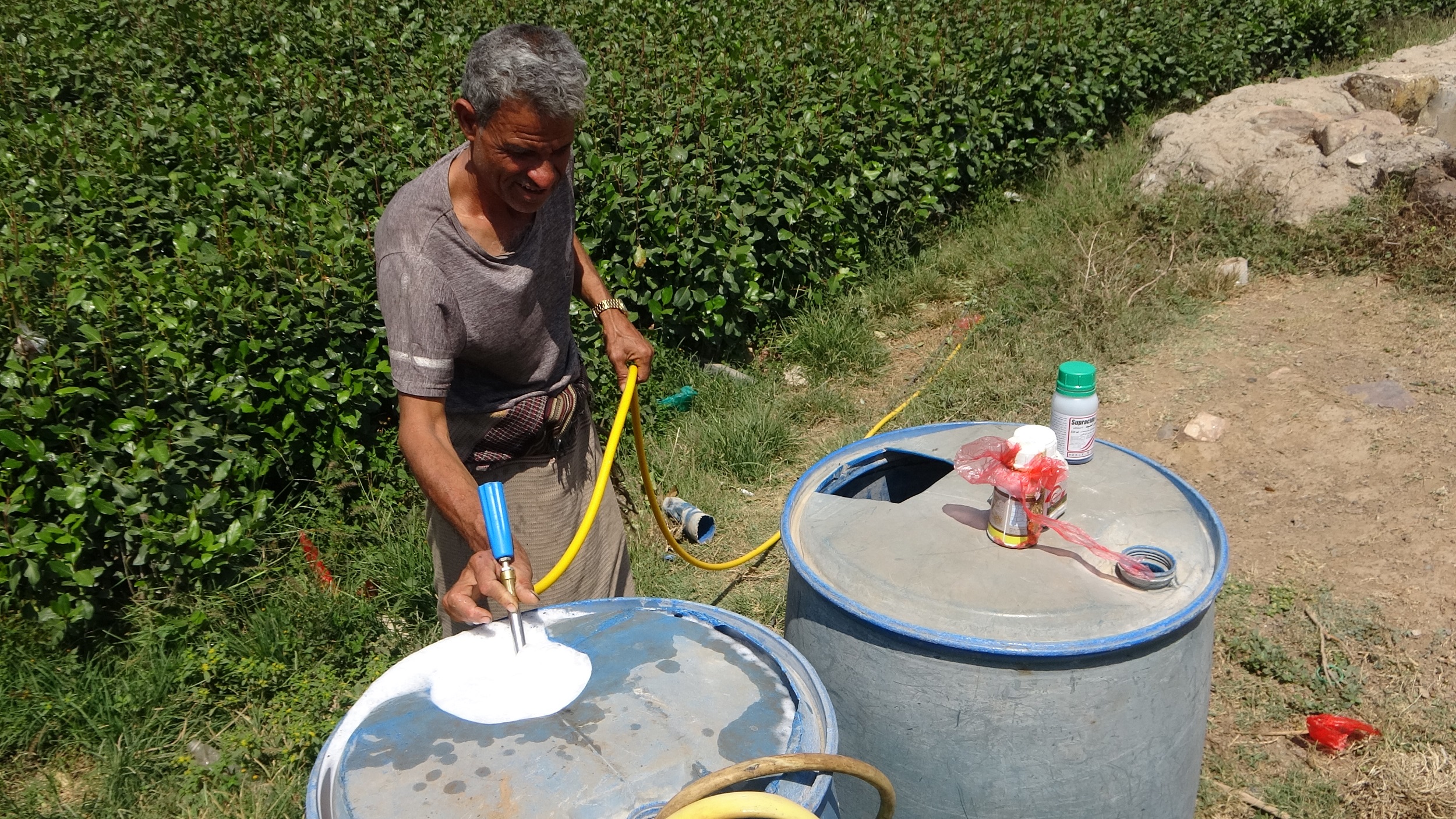
A farmer preparing pesticides to spray on the qat crop in ’Wadi Al-Zubiryat‘ in Qatabah in Al-Dhalea, April 8, 2025. Note that he is not wearing any protective headgear or gloves. (South24 Center)
Al-Salami told ’South24 Center‘ that his office does not intervene unless it receives an official notification from the ministry regarding the entry of unlicensed products. After that, field raids are conducted to remove the banned products from the markets. He pointed out that some importers have licenses issued by the Ministry of Agriculture, which makes it difficult to control the market.
Regarding the health aspect, Mohsen Al-Balhi, Deputy Head of the Health Office in Al-Dhalea, described the situation as “a growing threat amid the random use of pesticides and fertilizers without any censorship or regulations”. Al-Balhi told ’South24 Center‘ that the governorate does not have accurate data about the harmful health conditions caused by the wide use of these toxins and that no local scientific studies have been conducted so far to assess their impact on people and the environment.
Al-Balhi emphasized the urgent need to conduct specialized research on the subject and enact laws and issue directives to limit the use of poisonous substances to protect public health and the environment in Al-Dhalea.
Call to Adopt Natural Alternatives
In view of the random use of prohibited pesticides, officials and experts in Al-Dhalea have called for adopting alternative and sustainable solutions to reduce the harmful effect on the environment and health and enhance safe cultivation.
Mohammed Askar, Head of Industry and Trade in Al-Dhalea, told ’South24 Center‘ that “the relevant parties, due to the danger posed by these pesticides on society, have to assume their role in banning the import and trade in these harmful substances”. He emphasized the need for joint coordination between the Agriculture and Industry ministries to prevent issuing any license to import these products.
Saleh Al-Salami repeated the same call, stressing the importance of cooperation among the relevant parties to prevent the entry of prohibited substances and to ban the granting of licenses to import these products or to trade them locally.
For his part, agriculture expert Mohammed Al-Khayari called for adopting natural and safe solutions for agriculture. He pointed to the importance of using organic pesticides such as vegetable oils, especially neem oil, which is an effective natural pesticide. He pointed out the possibility of preparing insect repellents from substances such as garlic and chili pepper. This is in addition to the use of biological pesticides based on fungi and bacillus thuringiensis.
Al-Khayari believes that raising awareness and appropriate legislation constitute the two main pillars to confront the crisis of toxic pesticides. He proposed the following three steps:
● Training farmers on the safe use of pesticides and using alternative pest control methods.
● Enacting strict laws banning the import and use of internationally-
prohibited pesticides.
● Supporting research in the field of organic farming and the development of effective natural pesticides.
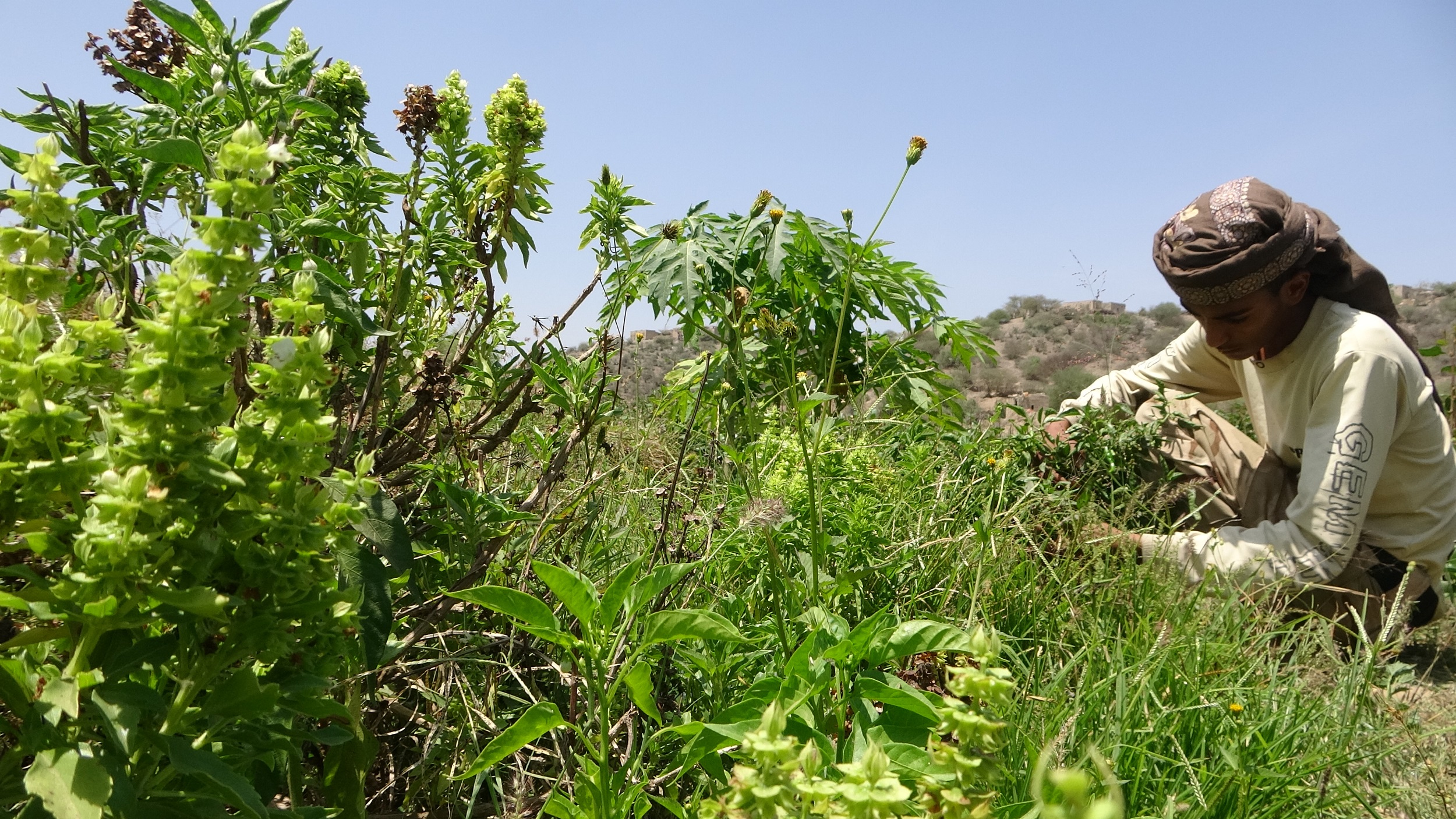
A farmer in ’Wadi Al-Zubiryat‘ in Qatabah in Al-Dhalea, April 8, 2025 (South24 Center)
These field testimonies and official statements obtained by ’South24 Center‘ reveal a complex crisis in Al-Dhalea where environmental, health, and regulatory factors intersect to produce a very dangerous reality. The ongoing circulation in the markets of the prohibited and highly-restricted pesticides and their use by citizens without knowing the associated risks stir deep questions about the effectiveness of institutional controls and to what extent the relevant official bodies are committed to protecting people's lives and the safety of the environment.
In view of this reality, issuing lists of prohibited and restricted pesticides isn’t enough without mechanisms for their actual implementation on the ground. Loopholes in supervision, the scattered responsibilities among the official bodies and the lack of community awareness allows the expansion and circulation of these deadly substances whose harmful effects increase year after year. While the number of people affected by pesticide-related illnesses is rising, the local community remains the weakest link in confronting this silent threat.
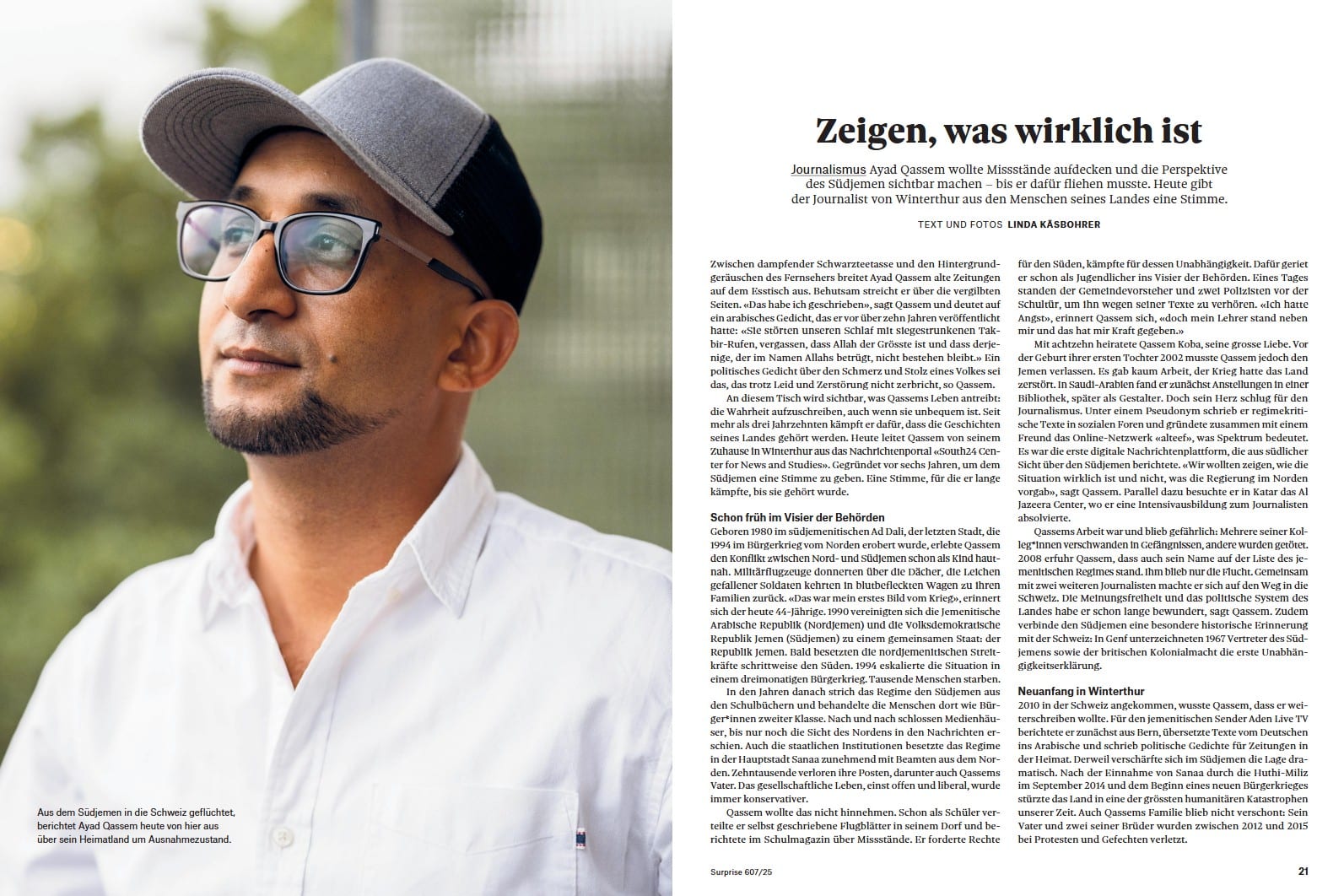
قبل 3 أشهر
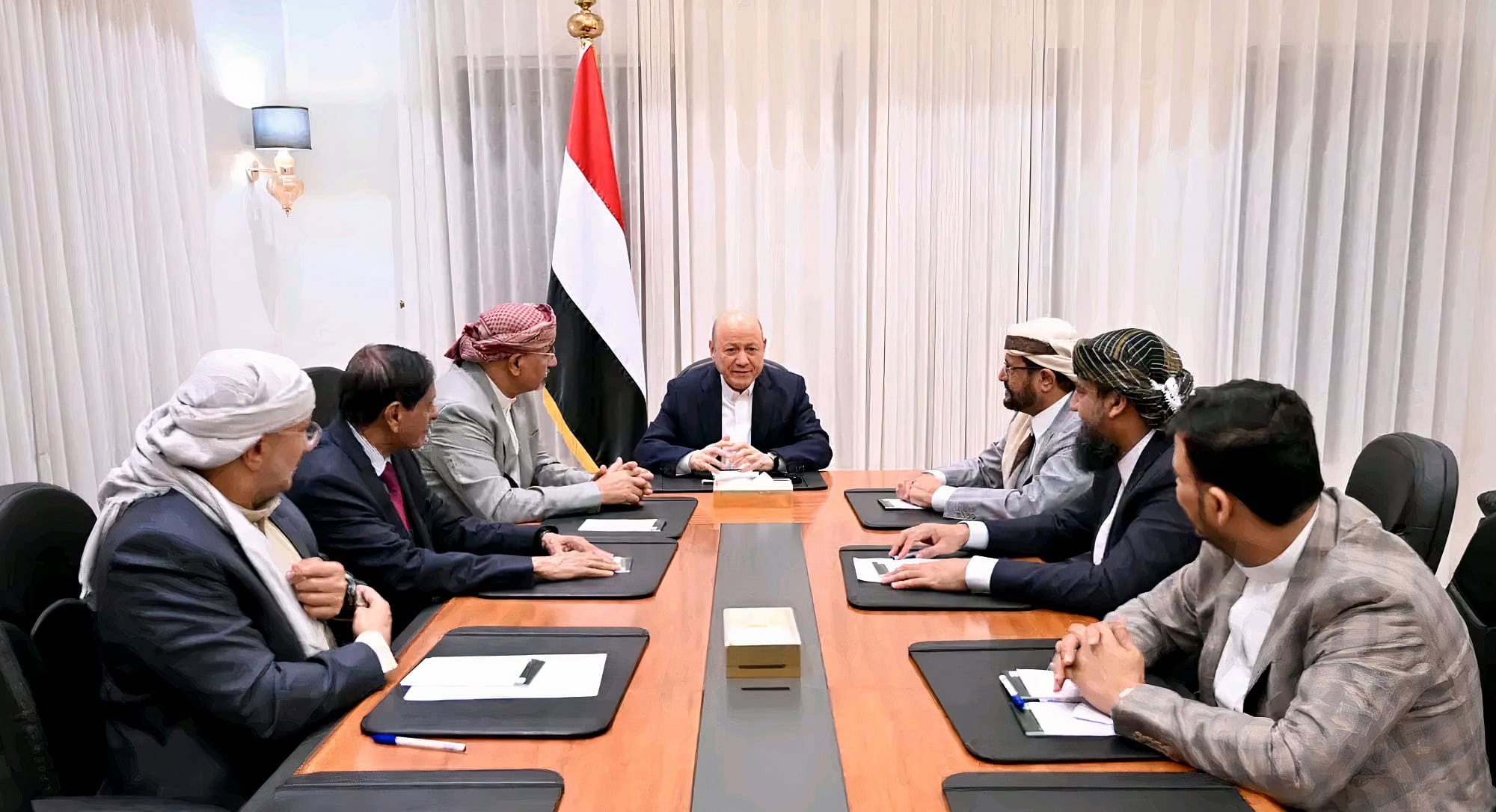
قبل 3 أشهر